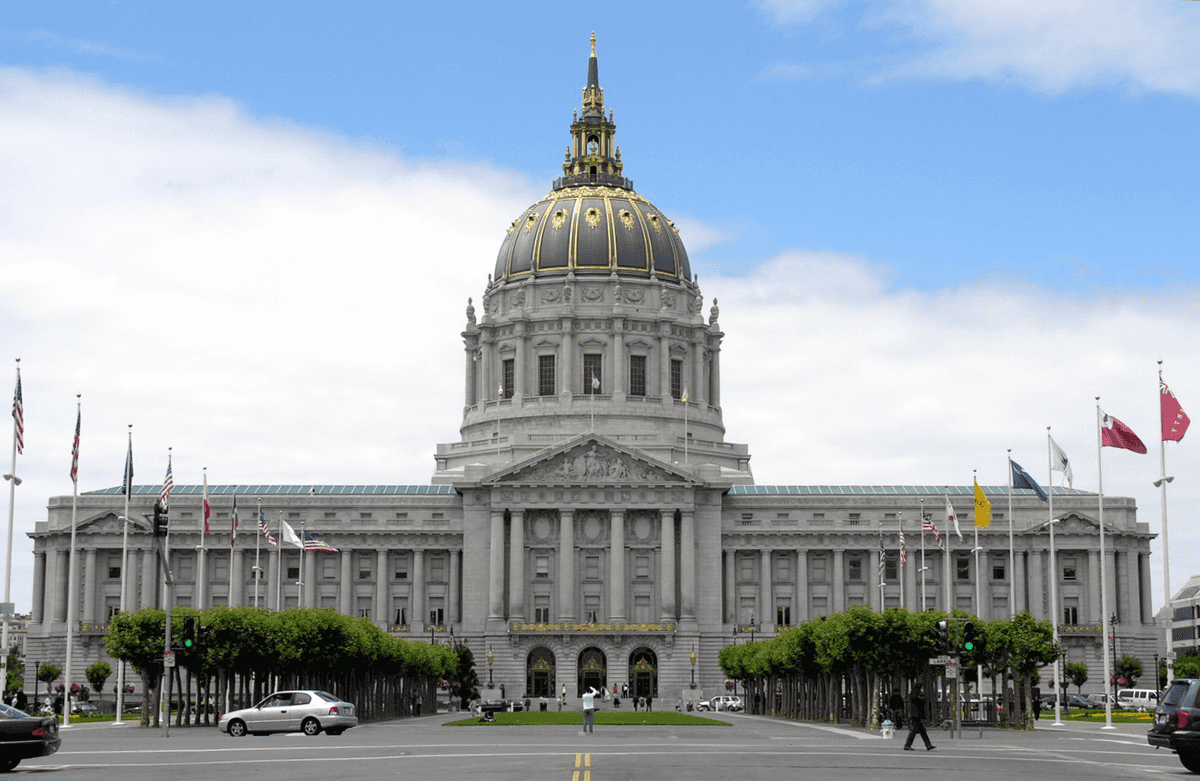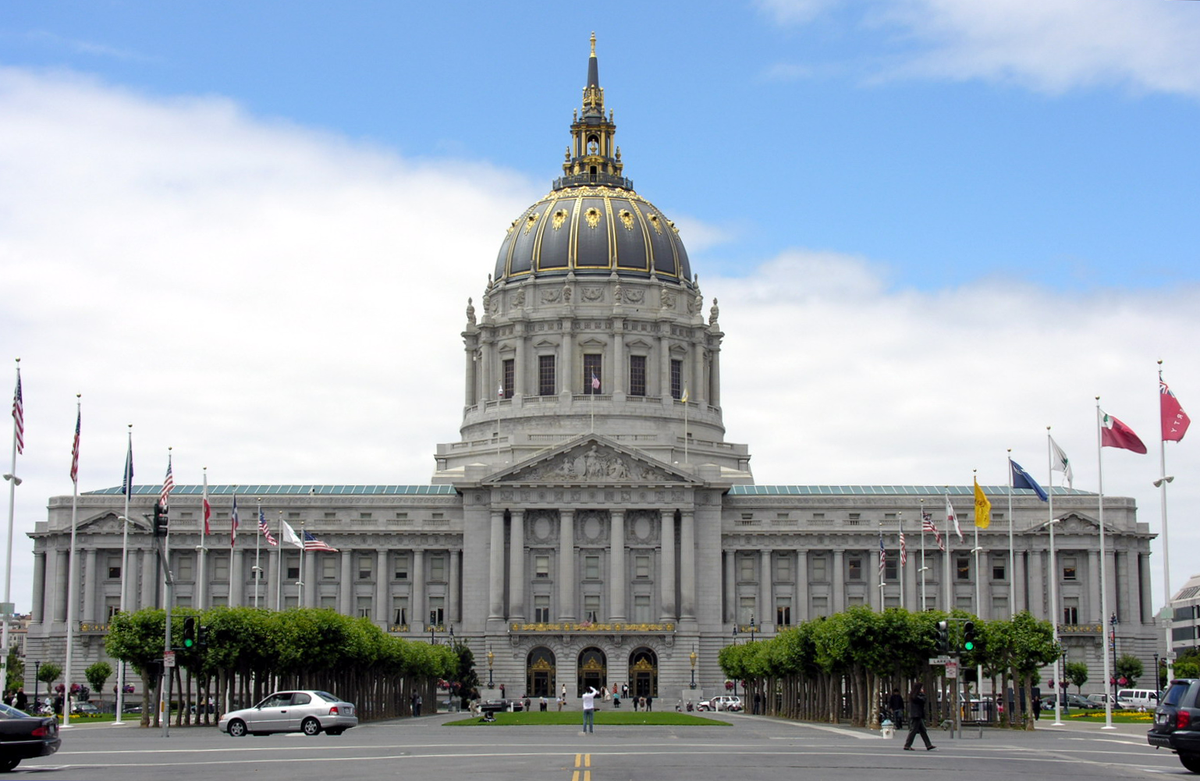How the SF Board of Supervisors Works
October 01, 2020

In a major city like San Francisco, it's easy to assume that the Mayor runs the show. But San Francisco's eleven District Supervisors --- the City's legislative body --- wield extensive power inside and outside of their immediate jurisdictions.
Supervisors oversee their respective districts, responding to constituent concerns and ensuring their needs are represented at the city level. But collectively, the Board of Supervisors make up a legislative body that shapes policy on everything from housing and transit to the City's budget. They write laws and resolutions, influence planning and finances, and sponsor ballot propositions --- including some of the propositions San Franciscans will be voting on this fall.
Before you vote this year, make sure you understand who your Supervisor is, and what values they espouse. Not sure what district you're in? Check here.

Supervisors are elected on a staggered basis: In 2020, only Supervisors in odd-numbered districts (1, 3, 5, 7, 9 and 11) are facing elections. And these races are often very close: In 2019, for example, Dean Preston beat his opponent Vallie Brown by 185 votes. And there's a twist! In San Francisco, we utilize ranked choice voting. For ranked-choice contests, everyone's first choice is counted. If a candidate receives a majority (50%+1) of first-choice votes, that candidate wins. But, if no candidate receives a majority (which happens frequently in closely-contested races!), the last-place candidate is eliminated, and voters who selected that candidate have their votes counted for their next choice. This cycle repeats until there is a majority winner. Back to the 2019 District 5 race, there were about 23,000 total ballots cast. While Vallie Brown beat Dean Preston in first-choice votes (11,171 to 11,119), about 1200 voters selected candidates other than Dean Preston and Vallie Brown as their first choice candidates. It was the second and third choices on those ballots that resulted in a Dean Preston win.
Furthermore, in a city as blue as San Francisco, the "partisan" divide isn't Democrats vs. Republicans --- it's Democrats vs. Democrats, with two competing factions of Democrats commonly referred to as Progressives and Moderates. Many consider the terms misnomers, and the lines between the two factions are nuanced and blurred. Both "San Francisco Moderates" (SF Mods) and "San Francisco Progressives" (SF Progs) have support from across the ideological spectrum, as local SF issues are very different from national issues that people generally think of as being "progressive" or "moderate". There are some Bernie supporters who may identify more with SF Mods on local issues and some Bloomberg or even Trump supporters who may identify with the SF Progs, and vice versa. As explained by the SFChronicle, one could argue the primary difference boil down to attitudes towards growth, with SF Progs skewing in favor of preserving what currently exists in the city at the expense of future growth by curtailing housing growth, increasing red-tape and raising taxes, while SF Mods tend to be more business-friendly, and favor increasing the supply of housing and jobs, and using that economic growth to drive increased tax revenue and funding on social programs.
While Mayor Breed is viewed as being a "SF Mod", the Board currently has a supermajority of SF Progs, a dynamic that plays out in often contentious ways. For example, Supervisors are tasked with approving Mayoral appointees of the SFMTA Board (governs Muni and transit infrastructure) and SF Police Commission (provides oversight over the Police Department). Over the past several months, Supervisors rejected objectively well-qualified Mayoral appointees to each body due to partisan politics.
Supervisors approve the City's budget, but don't have oversight over City departments nor direct authority over most spending --- and that can lead to conflict with the Mayor, who carries the duty to balance the budget and corral departments to execute plans realistically.
For example, the Board recently voted on a budget that taps City's emergency reserves to fund raises for city workers. That move has been strongly opposed by the Mayor, who has asked city workers to defer raises to help close a $1.9 billion budget deficit to avoid triggering layoffs.
Supervisors also write resolutions intended to broadcast San Francisco's position on statewide bills, and which can carry influence well outside of city limits. Late last year, the Board of Supervisors voted to oppose SB50, a Senate bill drafted by the California State Senator representing SF, Scott Wiener, would have raised the heights and densities of housing development in resource-rich areas near transit.
On a more granular level, Supervisors act as a final line of approval on small yet important matters such as neighborhood planning. The Board has the power to appeal and hear appeals on business permits, building permits, residential improvement permits, slow streets programs, protected bike lanes, transit only lanes, and other planning improvements --- a process that can tie up simple development projects for months or years.
These District elections may give the impression that you should care only about your direct Supervisor, but the reality is that the Board makes decisions that can affect every resident equally.
Visit Grow SF's sponsored PAC voter guide here.
For regular updates, be sure to subscribe and tell your friends.
Check your voter registration or register to vote here.
Sign up for the GrowSF Report
Our weekly roundup of news & Insights